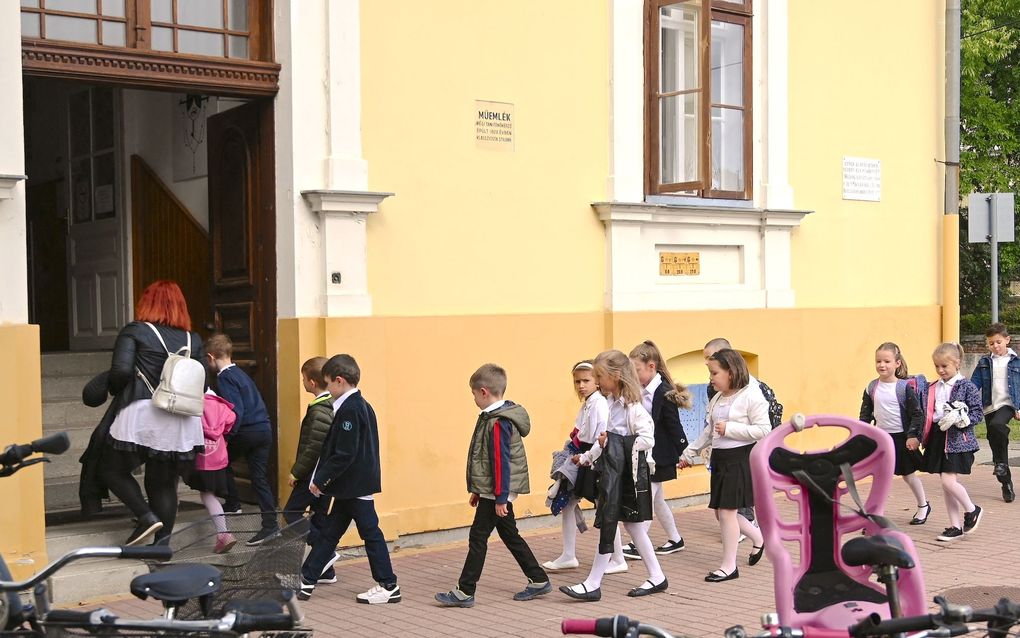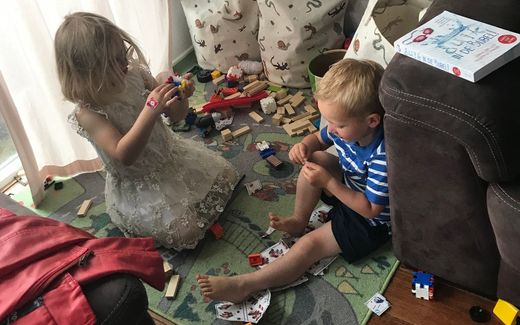Mother’s column: Your dreams can wait 8 or 10 years

Children go to school in Hungary after the summer vacation. Photo AFP, Attila Kisbenedek
Christian Life
The end of summer is finally here! No more heat, no more money-killing camp and holiday spending, children back in the institutional education system. Hooray! Or not so hooray?
No more seeing them during the day, no more baking and cooking together, no more splashing in the water. My motherly heart is seized with double feelings.
Edit is a new CNE columnist. She will write the Mother's Column from now on.
Our hearts are even heavier when the start of school also means the start of work. Especially when we go from being a stay-at-home mother to a labour force player.
Ambiguous feelings
The fruits of our love, our family treasures, and our children starting another school year. Once again, we must let go of their hands at the school gate. Hooray! Our hands will be free, which means we can do other things besides or instead of the daily cooking, washing and cleaning. And not hurrah! Someone else is educating our children during the day.
When I took the first of our three children to kindergarten at the age of three, I sobbed in the street at the separation. I lost my mental balance for days, as if a black cloud of grief had covered my mind. It was hard. It is easier with the second and third children, but still not easy at all.
Back to the labour market
This period is even more difficult for women who have to return to the labour market after 2-8-15 years. As well as being separated from their children, they must cope with changes at work.
In addition, society still sees women primarily as labour market producers who “do nothing”. At the same time, they spend at home with their children. The exception is the rare case of women who have had the opportunity to do some part-time work. For them, the transition may be more manageable. Still, admittedly, the home office is challenging to work with a preschooler or younger child.
Multi-shift family life
As mothers go out to work, the family has to regain balance. It is not for nothing that reconciling family and work is a central issue in political forums. Working eight hours a day, travelling at least one hour and trying to maximise household chores, child-rearing, and the role of wife can be a crushing experience.
Mothers pick up their job after a shift of household chores at home. A good proportion of fathers have overtime as a default at work. That makes it difficult to escape the demographic winter that is hitting Europe. Because who wants to have children if grandparents are not allowed to retire, fathers are hardly ever at home, and mothers are working more shifts?
Grandparents
“Regret promises little and delivers even less”, Carl Trueman says.
Christians are lucky because they have a map in their hands. Our faith shows us the way through difficulties and helps us navigate through the labyrinths of the world. When grandparents are not available to help, we can find friends in our Christian communities with whom we can work together in the community to solve childcare issues. After all, the Christian life is not individualistic.
What if fathers have to work overtime because the workplace expects it? Then we have to decide: can we give up the material well-being we live in, to spend more quality time together as a family? It is with the courage and freedom of faith that men (and women) can choose to balance work and family.
Family comes before work on the list of priorities, at least until children grow up. We can achieve our career dreams 8-10 years later; no need to rush. We can reduce mothers’ multi-shift existence by spreading the household chores, switching household appliances, and involving friends and acquaintances if we are brave enough to ask for help. Let’s allow our neighbours to take advantage of the opportunity to help us and others. And let’s be brave to offer help to those who might need it.
The Christian’s task is not to complain about the age he lives in but to understand its problems and to respond appropriately, as Carl Trueman says.
We teach this to our children at home, not in school.
Related Articles








